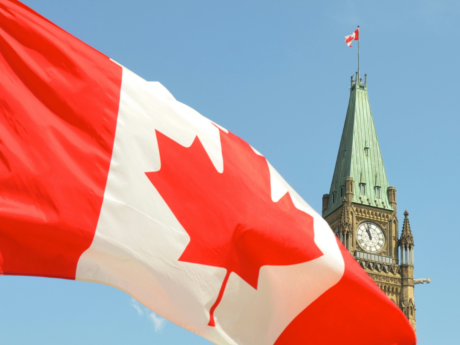How to build credit in Canada: A guide for beginners
CPA, CIRP, Licensed Insolvency Trustee

CPA, CIRP, Licensed Insolvency Trustee
Whether you’re new to Canada, new to independent living, or looking for a fresh financial start, understanding credit is essential to achieving a stable financial future. Credit can be confusing at first, but once you understand how it works—and how to build it—you’ll be in a much better position to rent an apartment, buy a car, or even get a mortgage.
Keep reading to understand what credit is, why it matters, and how you can start building or rebuilding your credit.
Why is credit important in Canada?
In Canada, your credit history plays a big role in your ability to borrow money and access certain services. Your credit score helps lenders, landlords, and (in some cases) employers understand how reliable you are when it comes to paying bills and managing debt.
Here are some common situations where credit matters:
- Renting an apartment: Landlords often check your credit to see if you’re likely to pay rent on time. A strong credit history can help you get approved.
- Buying a home: Mortgage lenders use your credit score to decide whether to approve your loan and what interest rate to offer. A better score could mean a lower rate, saving you money over time.
- Getting a car loan: If you choose to finance a vehicle, your credit score will affect your loan approval and interest rate. Poor credit could mean higher payments—or no loan at all. Whether you get a loan through a bank or dealership, they'll want to make sure you aren’t likely to fall behind on payments as this could result in vehicle repossession.
- Applying for a credit card: Your credit score affects whether you’re approved for a credit card, how high your credit limit is, and what interest rate you’ll pay. It can also impact the rewards or benefits you qualify for. If you ever fall behind and struggle to pay off your credit card balance, having a lower interest rate will be helpful.
- Setting up utilities: Utility companies may check your credit before setting up services like electricity, gas, or internet. A good credit score could mean a lower deposit or better rates.
- Applying for a job: Some employers may check your credit as part of the hiring process. This typically depends on the type of job, and employers are still required to obtain your consent before they pull your credit file. This won’t affect your credit score, as these types of checks are usually considered a “soft inquiry”.
What’s a credit score?
Your credit score is a three-digit number between 300 and 900 that summarizes your credit worthiness. The higher your score, the better your credit worthiness. In Canada, a score above 660 is generally considered good. Your credit score is meant to be a summary of your overall ability to make payments on time based on your credit report. Want to learn more about what affects your score? Check out our guide on the top 5 factors that impact your credit score.
What’s a credit report?
Your credit report is a detailed record of your credit history. It includes credit cards and loans you’ve opened, payment history, credit limits and balances, any missed or late payments, and public records like bankruptcies or consumer proposals.
Canada has two main credit bureaus: Equifax and TransUnion. You’re entitled to a free copy of your credit report from each bureau once a year. It’s a good idea to check both to ensure your credit report is accurate.
Learn how to read and understand your credit report.
How do I build credit in Canada?
If you’re starting from scratch or rebuilding after financial trouble, it’s important to start small. The goal of credit is to show you’re able to keep up with payments, so don’t take on more than you can handle. You can start by taking these small steps:
- Get a credit card: Start with one card that has a low credit limit. Avoid applying for multiple cards at once, as this can hurt your score. If you’re new to credit, consider student credit cards or secured credit cards, where you provide a deposit as collateral. These can be easier to qualify for and will help you build a positive credit history.
- Put a bill in your name: Putting a small monthly bill in your name—such as a phone or internet plan—is a great way to start building credit. Even if they don’t require a credit check, paying them on time helps establish a pattern of responsible financial behaviour.
- Make consistent payments: Credit takes time to build. Focus on paying your bills on time and in full every month—even one missed payment can hurt your score.
How can I improve my credit score?
Time and consistency are key to building good credit, but there are a few extra steps you can take if you’re looking to improve your credit score:
- Limit credit checks: Whenever a potential lender does a “hard check” it's noted on your credit report. If there are several hard checks in a short period, it can make lenders think you’re struggling for money and lower your credit worthiness.
- Avoid using multiple credit cards: A large number of credit card applications could make you look financially irresponsible, and having too many cards can make it easier to end up in overwhelming debt.
- Keep balances low: Try to use less than 30% of your total credit limit to maintain low “utilization”.
- Pay at least the minimum payment every month: Even if you can’t fully pay off the amount due each month, at least pay the minimum to maintain consistent payments.
- Pay down debt: Debt can negatively impact your credit score but paying it back can help you improve it! Consistently paying off debt can repair your credit in the long term.
- Report errors: Credit bureaus can make mistakes. It’s important to check your report at least once a year and dispute any errors to keep your credit intact.
How does bankruptcy impact my credit score?
Bankruptcy is a legal process that helps you eliminate overwhelming debt—but it will have negative impacts on your credit score. Bankruptcy will reduce your credit score to the lowest rating and will remain on your credit report for 6-7 years depending on your province.
A consumer proposal can be a good alternative that allows you to pay down your debt and is removed from your report 3 years after completion or 6 years after signing, whichever comes first. In a consumer proposal, debts are marked as settled (R7) instead of written off (R9) like in a bankruptcy. This can make it easier to rebuild your credit afterward.
Building credit in Canada doesn’t happen overnight—but with the right steps, anyone can do it. Whether you’ve newly immigrated, are a young adult, or someone rebuilding credit after financial hardship, the key is to start small, stay consistent, and be patient.
If you’re struggling with debt, a Licensed Insolvency Trustee can help you understand your options. Book a free consultation to start your journey towards debt freedom.
Take the first step to debt freedom
Speak to one of our debt solutions professionals during a free, no-obligation consultation.
Related articles
Loading







